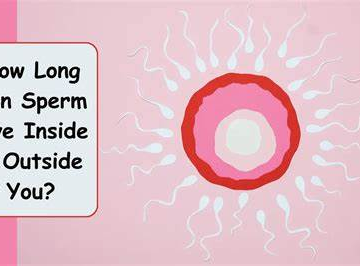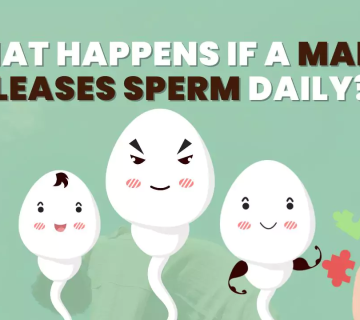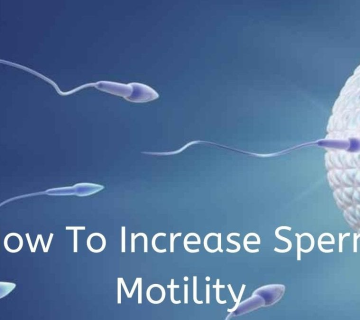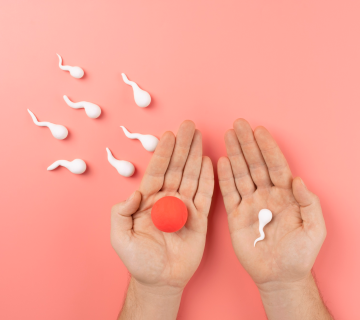
Does Alcohol Lower Sperm Count? The Real Story
If you’ve ever wondered whether that beer or glass of wine could affect your ability to start a family in the future, you’re not alone. Many men (and couples) have the same question: Does alcohol lower sperm count? This concern has become more common in recent years, as people strive to make the healthiest choices for their fertility and overall well-being. In this in-depth post, we’ll explore everything you need to know about alcohol’s impact on sperm count and overall male fertility—from the science of how it happens to practical steps you can take to protect and even improve your sperm health.
Why Sperm Count Matters
Sperm count refers to the average number of sperm cells found in a sample of semen. A healthy sperm count is important for successful fertilization of an egg. In simpler terms, the higher your sperm count (and the healthier those sperm cells are), the better your chances of conceiving with your partner.
- Fertility: A low sperm count can make it harder to father a child, potentially leading to frustration, stress, and the need for medical intervention or treatments.
- Overall Health Indicator: Doctors sometimes say sperm health can mirror your general health. Poor sperm quality or low count might suggest other underlying issues like hormonal imbalances, nutritional deficiencies, or lifestyle-related problems (such as too much stress or lack of sleep).
- Confidence and Well-Being: For many men, fertility is tied to self-image. Learning about how to maintain a good sperm count can boost your confidence and sense of control over your health.
The Science Behind Alcohol and Male Fertility
Alcohol doesn’t just have a one-way street in your body. It can affect everything from your liver to your brain. But how does it specifically impact your sperm? To answer that, we need a quick look at the hormones and processes involved in sperm production.
Understanding Hormones: Testosterone, Estrogen, and LH
- Testosterone: This hormone is crucial for male sexual development and sperm production. It helps in the creation of sperm in the testes.
- Estrogen: Men also produce small amounts of estrogen, which helps balance the body’s overall hormone levels. However, too much estrogen can negatively affect sperm production.
- Luteinizing Hormone (LH): This hormone signals the testes to produce testosterone. If LH is out of balance, testosterone production can drop, leading to reduced sperm counts over time.
When you drink alcohol, these hormones can shift. For some men, alcohol use might boost estrogen or reduce the body’s natural testosterone production. Both these issues can lead to fewer sperm being made or cause the sperm that are produced to be of lower quality.
How Alcohol Affects Hormonal Balance
- Disruption in the Brain: Alcohol can interfere with the hypothalamus and pituitary gland, which are responsible for releasing LH and other hormones. This chain reaction can lower testosterone levels.
- Increase in Estrogen: Heavy alcohol intake can increase the body’s conversion of testosterone into estrogen. When the ratio of estrogen to testosterone is imbalanced, sperm production may suffer.
- Oxidative Stress: Alcohol metabolism creates free radicals, which can damage cells throughout the body, including those responsible for sperm production.
Short-Term vs. Long-Term Effects on Sperm
Not all alcohol consumption is equal. There’s a huge difference between occasionally enjoying a glass of wine at dinner and regularly binge drinking on weekends. Each pattern has its own impact on sperm health.
Occasional vs. Chronic Drinking
- Occasional or Moderate Drinking: Having one drink now and then is less likely to cause a major drop in sperm count for most healthy adults. Research suggests that moderate alcohol use (up to 2 drinks a day for men, according to some guidelines) may not dramatically harm fertility. However, “safe” levels can vary from person to person.
- Chronic or Heavy Drinking: This is where problems often arise. Heavy, consistent alcohol intake can lead to hormonal imbalances, liver damage, and nutrient deficiencies—all of which can lower sperm count and reduce sperm quality over time.
Binge Drinking Consequences
Binge drinking is defined as consuming a large amount of alcohol in a short period of time (typically 5 or more drinks for men in about 2 hours). This sudden influx of alcohol can trigger:
- Temporary but Significant Hormone Fluctuations: Testosterone levels might drop sharply for a day or two.
- Increased Production of Free Radicals: These can harm the delicate cells in your testes and reduce sperm quality.
- Longer Recovery Period: If binge drinking happens regularly, your body may not have enough time to restore normal hormone levels before the next episode.
Specific Studies and Findings
Numerous studies have examined the relationship between alcohol and sperm health. While not all findings are identical, the overarching conclusion is that excessive alcohol consumption can have a negative impact on sperm count, sperm motility (how well they swim), and sperm morphology (their shape).
- Study Highlight: A study published in the journal BMJ Open found that men who consumed more than 5 units of alcohol a week (around 5 beers or a mix of drinks containing similar alcohol volume) showed lower sperm quality compared to lighter drinkers.
- Nutrient Deficiencies: Heavy alcohol use can deplete key nutrients like zinc, folate, and vitamins B and C, all of which are essential for healthy sperm production.
- Correlation with Liver Health: Alcohol-related liver damage can worsen hormonal regulation, further hurting sperm production and overall fertility.
Note: While moderate drinking may not be as damaging, there is no universal “completely safe” amount, especially when you’re actively trying to conceive. Individual factors—like your genetic makeup, your diet, and overall health—can determine how sensitive you are to alcohol’s effects.
Types of Alcohol and Their Impact
You might wonder if beer consumption and sperm count are affected differently than wine or hard liquor. While each type of alcoholic beverage has different additives, sugar content, and alcohol percentages, the active ingredient in all of them is ethanol. That means the overarching effect—raising your blood alcohol level—is fairly similar across the board.
Beer: Is It Really “Safer”?
Some people believe beer is safer because it has a lower alcohol percentage. But consider these points:
- Volume Matters: You might end up drinking more beer to get the same “buzz,” which can result in consuming a large overall amount of alcohol.
- Phytoestrogens: Beer contains certain plant compounds (like those from hops) that may have mild estrogen-like effects. There’s debate about whether this can significantly affect male hormones, but excessive beer intake might be an added risk factor when it comes to sperm production.
Wine vs. Liquor: Does It Matter?
- Wine: Some studies suggest red wine has antioxidants that could be beneficial for health. However, it still contains alcohol. Drinking too much wine can lead to the same hormone disruption as any other form of alcohol.
- Liquor: Liquor is typically higher in alcohol by volume. Mixed drinks often include sugary mixers that can lead to weight gain and metabolic issues, which indirectly affect sperm health.
Bottom Line: The type of alcohol might not be as important as the total amount of ethanol you consume. Whether you choose beer, wine, or liquor, moderation is key if you’re concerned about fertility.
Signs and Symptoms of Potential Alcohol-Related Fertility Issues
Sometimes, men don’t notice a drop in sperm count until they have trouble conceiving. However, your body may show signs or symptoms that your fertility could be affected:
Low Libido
A significant decrease in libido can be an early sign of hormonal imbalance. Chronic alcohol use might reduce testosterone levels, making you feel less interested in sexual activity.
Changes in Body Composition
- Increased Body Fat: Higher estrogen levels and lower testosterone levels can promote fat storage, especially around the waist.
- Loss of Muscle Mass: Testosterone helps build and maintain muscle. If you notice it’s harder to gain or keep muscle, it could signal lower testosterone production.
Emotional and Psychological Signals
Excessive or chronic drinking can also affect mental health by contributing to:
- Depression: Long-term alcohol use alters brain chemistry, which can lead to mood swings or depressive symptoms.
- Anxiety: Some people might use alcohol to reduce anxiety, but heavy usage can make anxiety worse in the long run.
Any of these signs might hint at an internal process that’s harming your fertility. It’s always a good idea to check with a healthcare provider if you notice these changes.
Can Sperm Count Recover After You Reduce Alcohol?
The good news is that sperm production is an ongoing process. Healthy sperm are produced approximately every 64 to 72 days. This means that if you lower your alcohol intake or stop drinking altogether, your sperm count may recover over time—sometimes significantly.
Timeframe for Improvement
- Short-Term Abstinence (1-3 Months): You might start seeing improvements in sperm motility and count after just a few weeks. However, noticeable changes are usually seen around 3 months, given the sperm production cycle.
- Long-Term Recovery (6-12 Months): For those with serious hormonal imbalances or chronic drinking habits, it could take 6 months to a year of reduced alcohol consumption (along with other healthy lifestyle changes) to see major improvements in fertility.
Lifestyle Changes That Speed Up Recovery
Here are some steps you can take to support sperm health while reducing or eliminating alcohol:
✔️ Adopt a Balanced Diet: Focus on protein sources, fruits, vegetables, whole grains, and healthy fats.
✔️ Stay Hydrated: Adequate water intake helps your body flush out toxins and maintain healthy blood volume.
✔️ Regular Exercise: Aim for moderate aerobic activity and some strength training each week.
✔️ Manage Stress: Chronic stress can lower testosterone levels. Try meditation, yoga, or even daily walks.
❌ Avoid Smoking: Tobacco use can also harm sperm production. Quitting smoking and reducing alcohol together can speed up your fertility recovery.
Practical Tips to Protect and Improve Sperm Health
Even if you enjoy an occasional drink, there are many ways to protect your sperm from damage. The key is to combine good habits and limit harmful ones.
Healthy Diet
A balanced diet is fundamental for all aspects of health, including fertility. Consider incorporating:
- Lean Proteins: Chicken, fish, turkey, and beans help support muscle and hormone production.
- Fruits and Vegetables: These contain antioxidants like vitamin C and beta-carotene, which help combat oxidative stress.
- Whole Grains: Brown rice, oats, and quinoa provide essential vitamins and minerals without spiking blood sugar as quickly as refined grains.
- Healthy Fats: Avocados, nuts, seeds, and olive oil offer omega-3 fatty acids, which are beneficial for hormone balance.
Tip: Aim for a “colorful plate.” The more variety in fruits and vegetables, the broader range of antioxidants you get.
Exercise and Stress Management
Regular exercise can boost testosterone, maintain a healthy weight, and reduce stress. However, avoid excessive exercise, especially if it leads to burnout or very high stress on the body (e.g., overtraining). Balance is crucial.
- Resistance Training: Supports muscle mass and hormone health.
- Cardiovascular Exercise: Improves blood flow, which can help with overall reproductive health.
- Stress-Busting Activities: Yoga, meditation, or even regular walks in nature can help stabilize hormones and support a healthy mental state.
Supplements and Vitamins
While a healthy diet should be your primary source of nutrients, certain supplements might give an extra boost:
| Supplement | Potential Benefit for Sperm |
|---|---|
| Zinc | Supports testosterone production and sperm quality. |
| Vitamin C | Protects sperm from oxidative stress and improves motility. |
| Vitamin D | Helps regulate hormones and can support sperm production. |
| Folic Acid | Works with zinc to improve sperm count and quality. |
| L-Carnitine | Assists with energy metabolism in sperm cells. |
Myth Busting: Common Misconceptions
When it comes to drinking and fertility, there are a lot of myths floating around. Let’s clarify a few:
“A Glass of Red Wine Is Always Good for You”
- Reality: While red wine has antioxidants (like resveratrol), it still contains alcohol. A single glass once in a while might have minimal effects on sperm for most men. But regular, heavy intake—even of red wine—can lead to negative outcomes.
“Only Hard Liquor Causes Harm”
- Reality: The main culprit is ethanol, which is found in every alcoholic beverage. Beer, wine, and hard liquor can all harm sperm if you overconsume.
Frequently Asked Questions
Below are some common questions men have about how alcohol affects fertility and safe drinking levels when trying to conceive.
Q1: How Much Is Too Much?
There’s no one-size-fits-all answer, but most experts define heavy or risky drinking for men as more than 14 standard drinks per week. Even consuming more than 5-7 drinks weekly could be a concern if you’re actively trying to get your partner pregnant.
Q2: What If I Only Drink on Weekends?
Binge drinking—consuming several drinks in one session—can still lead to significant hormone fluctuations and oxidative stress. Even if it’s only on weekends, large amounts of alcohol in a short time frame can harm sperm.
Q3: Is It Safe to Drink While Undergoing Fertility Treatments?
Most doctors recommend minimizing or cutting out alcohol altogether if you’re undergoing fertility treatments like IVF (In Vitro Fertilization) or IUI (Intrauterine Insemination). High-quality sperm is crucial for the best treatment outcomes.
Q4: Does Quitting Alcohol Guarantee a Higher Sperm Count?
While quitting alcohol is a major step toward improving sperm health, there can be other factors involved, such as smoking, poor diet, or genetic issues. Still, reducing or eliminating alcohol greatly improves your odds of seeing a positive change.
Expert Insights and Latest Research
Research in the field of reproductive health is ongoing, and new findings often emerge about alcohol’s relationship with fertility. For instance:
- Genetic Impact: Some studies suggest chronic alcohol use may affect sperm DNA integrity, potentially leading to a higher risk of miscarriages or developmental issues in offspring. While more data is needed, it’s something to consider if you’re trying to conceive.
- Link to Other Lifestyle Factors: Often, heavy drinkers are more likely to have poor dietary habits, less physical activity, and higher stress levels—all of which can worsen fertility outcomes. It’s crucial to look at your lifestyle as a whole, not just your drinking habits.
- Future Therapies: Scientists are looking at specific antioxidants and hormone therapy to help men with alcohol-related infertility. If you struggle with low sperm count or other fertility challenges, talk to a medical professional about emerging treatments.
Reversing Sperm Count Damage: A Deeper Look
For those worried about permanent damage, remember that sperm production is ongoing and can improve if you remove or reduce the factors causing harm. However, the timeline and extent of recovery can differ from one individual to another.
Factors That Influence Recovery
- Age: Younger men may recover faster than older men, as testosterone levels naturally decline with age.
- Severity of Alcohol Use: Chronic heavy drinking for many years can cause more lasting damage, requiring professional intervention.
- Overall Health: If you have other health conditions—like diabetes or obesity—these can slow down sperm recovery.
Recovery Action Plan
- Step 1: Limit or Eliminate Alcohol
- Commit to a set number of drinks per week, or cut it out entirely.
- Step 2: Optimize Nutrition
- Include protein-rich foods (like lean meats and beans) and antioxidant-rich fruits and veggies (blueberries, spinach).
- Step 3: Consider Supplementation
- Talk to a doctor about zinc, folic acid, or L-carnitine.
- Step 4: Maintain an Active Lifestyle
- Aim for 30 minutes of moderate exercise at least 5 days a week.
- Step 5: Track Progress
- Periodic sperm analyses can help you see improvements in count, motility, and morphology.
Additional Practical Guidelines: Checklists and Tips
Here’s a quick at-a-glance reference to help you stay on track:
✔️ Do:
- Hydrate: Drink plenty of water to help your body detox.
- Sleep Well: Aim for 7-8 hours of quality sleep per night. Sleep is crucial for hormone regulation.
- Stay Cool: Overheating the testes (e.g., using hot tubs or saunas frequently) can also affect sperm count. Keep things cool down there.
- Seek Support: If you struggle to control alcohol intake, don’t be afraid to seek professional help or counseling.
❌ Don’t:
- Overuse Caffeine: Excessive caffeine combined with alcohol can overstress the body and disrupt sleep.
- Ignore Underlying Health Issues: Conditions like hypertension or liver disease can worsen when mixed with alcohol.
- Rely on Myths: Base your decisions on factual information and medical advice, not just hearsay.
Putting It All Together: A Holistic View
When we ask, “Does alcohol lower sperm count?” the short answer is yes, especially if drinking is excessive or frequent. But it’s important to see the bigger picture. Alcohol is just one part of the puzzle. Other lifestyle factors—such as diet, exercise, sleep, and stress—play a huge role in fertility as well. By addressing these areas and making healthier choices, many men can significantly improve their sperm count and overall reproductive health.
Understanding “Safe” Drinking Levels
- Moderation: Some men might be able to enjoy a drink or two occasionally without severely harming their fertility. But when planning a pregnancy, cutting back further may be wise.
- Personal Thresholds: Everyone’s body is different. What’s “moderate” for one person could be too much for another. Be honest with yourself about how alcohol affects you personally.
The Big Fertility Equation
It’s not just about sperm count or even just about the man. Fertility is a shared journey between partners. Women’s health, timing of ovulation, and general relationship well-being also matter. But by eliminating or reducing harmful factors like excessive alcohol consumption, you can raise the odds of conceiving and having a healthy pregnancy.
Conclusion: Take Charge of Your Fertility
Deciding to cut back or quit alcohol isn’t always easy, especially if it’s a regular part of your social life. But if you’re concerned about your fertility—or already experiencing challenges—reducing alcohol could be a powerful step toward improving your sperm health. And remember, it’s not just about fertility. Reducing alcohol may help you feel better overall, with benefits like improved sleep, higher energy, and a clearer mind.
Interactive Section
Before you go, here are a few reflective questions and small tasks to help you put what you’ve learned into action:
-
Question: How many drinks do you typically have in a week?
- Action: Jot down your weekly intake for the next two weeks. Observe any patterns or triggers for drinking.
-
Question: What’s one small lifestyle change you can commit to today?
- Action: Choose a single habit (like adding an extra serving of veggies, going to bed 30 minutes earlier, or switching from sugary mixers to water) and stick to it for a week. Note any differences in energy levels or mood.
-
Question: Have you talked with your partner about alcohol and fertility?
- Action: Sit down for an open discussion about both of your goals. Planning together can make lifestyle changes more successful and less stressful.
-
Question: Would you consider a short-term “trial break” from alcohol?
- Action: Challenge yourself to a 30-day alcohol-free period. Track how you feel physically, mentally, and emotionally. You might be surprised at the benefits.
By answering these questions and following the suggested actions, you’ll take meaningful steps toward safeguarding your fertility. And who knows—you might discover a healthier, happier you in the process!
Remember: Everyone’s situation is unique. If you’re worried about low sperm count or fertility challenges, don’t hesitate to reach out to a healthcare provider for personalized advice. Making informed choices now can have a positive impact on your future family and overall health. Take care, and here’s to a healthier, more confident you!



